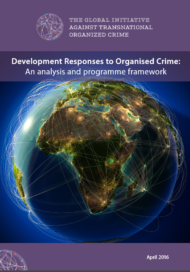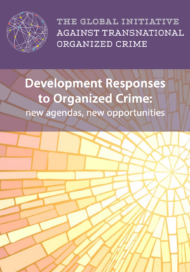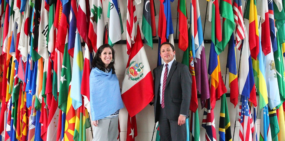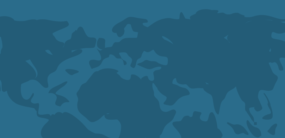Posted on 25 Apr 2016
With the approval of the Sustainable Development Goals 2030, development actors are increasingly both recognising the need and being called upon to respond to the challenges of organised crime and its impact. But there remains a significant lacuna on what the implications are for how development programming should be delivered. This framework, developed by the Global Initiative, is an attempt to shift to a situation where development actors are proactively acknowledging and addressing crime and criminal actors in their work.
This framework provides a three-step exercise, which attempts to move beyond traditional approaches by offering:
- a means for policy-focused analysis,
- a structure through which responses can be prioritised using the nature of the impact and harm caused as the primary lens of analysis, and
- a set of programmatic responses that are sensitive to opportunities and entry points for engagement.

The Global Initiative against Transnational Organised Crime, along with selected development partners, has hosted a sequence of meetings known as the “Development Dialogue” over the last two years focussed on debating and determining how development actors can engage more effectively on responding to organised crime.
This framework, funded by the UK Department for International Development, distils many of the discussions that have taken place within the Dialogue and seeks to provide a clear approach as to how development actors can both analyse and respond to organised crime and illicit markets more generally.
Moving towards multi-dimensional responses
A combination of the extent of the impact of organised crime, but also the acknowledgement that many of its causes relate to a wider set of governance, social, developmental and other factors, has highlighted incontrovertibly that a narrow security approach will not be effective in countering the problem. If an effective and sustainable solution to organised crime is to be found, it is imperative that the weight of the development response is brought to bear.
Despite the fact that organised crime is increasingly being recognized as a spoiler to development, development actors remain challenged on how, where, when and even if this has implications for how they should be delivering programming.
The purpose of a conceptual framework is, therefore, to provide a common set of analytical tools that could underpin a holistic, multi-sectoral programme, and to provide a corresponding sets of activities – and their linkages – which development actors may undertake. In short, the purpose of the framework is to:
Propose a common language and a more holistic approach: The evolving discussions in the Development Dialogue have shown that even amongst development actors approaches, definitions and understanding of key concepts are not the same. A single framework provides an opportunity to agree on a common nomenclature and overall conceptual approach.
Define clearly what can and cannot be done programmatically: Timing is a key requirement for programming on organised crime. Not all interventions make sense all the time. Questions of power relations and state legitimacy, combined with the degree to which illicit markets have evolved, must all be taken into account in deciding when, and more importantly how, to intervene.
Connect different programming options under one common, integrated approach: While an array of programming options emerge through the use of a framework, its explicit purpose must be to link these together. Each intervention, and its timing, must be definable in relation to all others, including those that are determined for future action.
Encourage innovation and experimentation: Discussions within the Development Dialogue have consistently underscored that while a common language and single overarching framework is required, this should in no way limit the ability of development actors to experiment in a complex field. The framework provides a way of looking at the challenge of illicit markets, suggests different policy options, but also encourages thinking as to how new approaches can be tried.
The Development Dialogue was made possible with funding and the good offices of the Governments of the Netherlands, Germany, Norway, the United Kingdom and the United States. The framework tool was funded by the UK Department for International Development. The Global Initiative would like to offer its thanks to all of the development partners who engaged in this process with us.
With further funding from the UK and Norway, in 2016 the Global Initiative will be piloting the use of the framework to analyse and development responses to the challenge of migrant smuggling in the Horn of Africa.
For more information about the Development Dialogue or the framework tool and its application, please contact the Head of the Secretariat, Tuesday Reitano (tuesday.reitano@globalinitiative.net).




